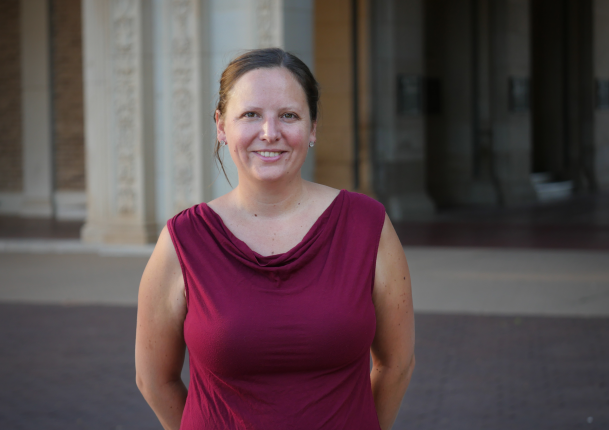2022-2023 Faculty Fellows
The Humanities Center congratulates Fareed Ben-Youseff, Assistant Professor in Film and Media, and Sydnor Roy, Assistant Professor of Classical Studies, on being named our Spring 2023 Faculty Fellows.
These fellowships will allow Professors Ben-Youseff and Roy time away from scheduled teaching to focus on major projects. Please see the descriptions of these fellows' projects below.
Fareed Ben-Youseff, 9/11 Transformed the Whole Planet, Not Just America!': Following the War on Terror's Shadow Across Global Cinema
After 9/11, the UN Security Council passed Resolution 1373, requiring all member states
to align their domestic laws with America's War on Terror mandate. The resolution
laid the foundation for global security law. This qualitative study follows the War
on Terror's shadow across global cinema by examining how international filmmakers
have adopted Hollywood genres to critique the expansive legal frameworks that define
the post-9/11 world. Expanding upon Ben-Youssef's recent monograph No Jurisdiction
(SUNY Press, 2022) focused primarily on post-9/11 genre cinema in the U.S. context,
it asks: How has the impact of 9/11 and the U.S. War on Terror been represented in
global cinema? How have international filmmakers used Hollywood genres to show the
ways local laws have shifted vis-à-vis the War on Terror? How have the costs of such
shifts on already-marginalized populations been represented? Ben-Youssef's Spring
2023 research as a Humanities Center fellow focuses primarily on France, a nation
marked by great social and legal shifts after 9/11. Since then, France has increasingly
scrutinized its Arab and multi-racial populations. Ben-Youssef explores how French
filmmakers have employed well-established genres (like the western) to visualize how
9/11 and subsequent states of emergency have widened existing divides between the
country's White and non-White communities
Sydnor Roy, Political Relativism: Political Theories in Herodotus' Histories
 In my project, I argue for a fundamental realignment of how we talk about politics
and political theorizing in Herodotus' Histories. My monograph explores the complex
and mutually influential relationships between geography, culture, history, individuals,
and politics in the Histories, with a goal towards positing an understanding of political
thought and action in the text. I will show that Herodotus employs historical characters
and speakers representative of a society to explicate competing ideas of how the relationships
listed above work. Through analysis of the speakers' ideas and Herodotus' own (expressed
or implied by the narrator), I provide a new understanding of how Herodotus thinks
about how politics and political actors work. The result, contrary to most scholars'
view of Herodotus, is a consistent, if implicit, political theory at play in the Histories
that I call “political relativism” – the recognition that a society makes political
choices based upon the subjective beliefs of its people, which are formed by their
culture, environment, and history. Often in Herodotus, culture is destiny; but actors,
both individual and societal, who are able to understand how culture shapes destiny,
can shift the natural course of events in a new direction.
In my project, I argue for a fundamental realignment of how we talk about politics
and political theorizing in Herodotus' Histories. My monograph explores the complex
and mutually influential relationships between geography, culture, history, individuals,
and politics in the Histories, with a goal towards positing an understanding of political
thought and action in the text. I will show that Herodotus employs historical characters
and speakers representative of a society to explicate competing ideas of how the relationships
listed above work. Through analysis of the speakers' ideas and Herodotus' own (expressed
or implied by the narrator), I provide a new understanding of how Herodotus thinks
about how politics and political actors work. The result, contrary to most scholars'
view of Herodotus, is a consistent, if implicit, political theory at play in the Histories
that I call “political relativism” – the recognition that a society makes political
choices based upon the subjective beliefs of its people, which are formed by their
culture, environment, and history. Often in Herodotus, culture is destiny; but actors,
both individual and societal, who are able to understand how culture shapes destiny,
can shift the natural course of events in a new direction.
Humanities Center
-
Address
Texas Tech University, 2508 15th Street, Weeks Hall 221, Lubbock, TX 79409-1002 -
Phone
806.742.3028 -
Email
humanitiescenter@ttu.edu
